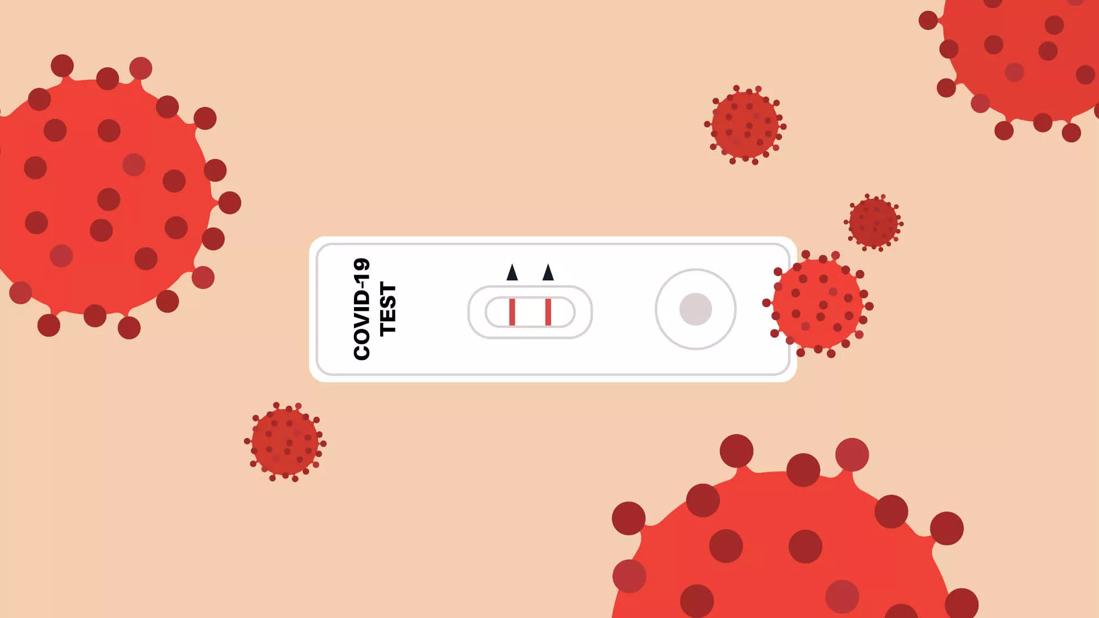Advertisement
The duration varies, but symptoms can linger for a few days up to a couple weeks or more

By now, a lot of us should be vaccinated against COVID-19, especially as we’re treating the virus the same way we treat the flu. Every year, an updated annual vaccine will be available to fight off the latest circulating and most dominant variants of COVID-19. But does that mean once you’re vaccinated, you’re in the clear? Well, not exactly.
Advertisement
Cleveland Clinic is a non-profit academic medical center. Advertising on our site helps support our mission. We do not endorse non-Cleveland Clinic products or services. Policy
As with cases of the flu, there’s still a chance the virus that causes COVID-19 could break through your immune system’s bolstered defenses. When breakthrough cases like this happen, the virus can get you sick, or at the very least, cause you to be contagious until the virus wears off.
Breakthrough cases of COVID-19 are actually more common than you might think, but they’re far less dangerous than if you were infected with the virus while unvaccinated. Infectious disease expert Steven Gordon, MD, explains why you can get COVID-19 after you’re vaccinated, and how a post-vaccine infection will likely affect you in different ways.
A breakthrough case is when a person tests positive for COVID-19 at least two weeks after becoming fully vaccinated (which includes receiving the latest COVID-19 vaccine).
Breakthrough cases are common occurrences, and they were always expected in some fashion, as we see it happen with other viruses like the flu. You can get infected from any COVID-19 variant that’s circulating, even those you’ve been vaccinated against. You can also get infected more than once by the same or different variants. But the most important thing, despite having been infected, is knowing that the likelihood of your symptoms being severe is greatly reduced compared to if you weren’t vaccinated.
“You are ‘fully vaccinated’ if you’ve received the most recent available COVID-19 vaccine, which is the absolute best protection against breakthrough cases from variants of concern,” states Dr. Gordon.
It’s quite common for someone to still get COVID-19 even though they’ve been vaccinated. But it’s difficult to estimate exactly how many people get infected after having the vaccine because most cases tend to be asymptomatic (meaning you experience no symptoms) or mild. And people are less likely to get tested for COVID-19 if they’re not exhibiting any symptoms or if it seems like the average common cold.
If you’ve been fully vaccinated for COVID-19, you’ll likely experience the same typical symptoms associated with unvaccinated COVID-19 cases — but the symptoms you experience will likely be few, less severe and resolve at a much faster rate. Some of the symptoms you’ll possibly experience include:
“Many breakthrough cases are either asymptomatic or have symptoms that are far less severe than cases in unvaccinated patients,” Dr. Gordon notes. “The updated vaccines are absolutely key to making any potential illness from a COVID-19 infection much more manageable.”
Everyone’s body responds to infections differently, but ongoing research suggests that your COVID-19 recovery time after getting vaccinated is much faster than if you were unvaccinated. In general, you can expect to experience symptoms anywhere from a few days up to two weeks.
You can still spread COVID-19 even if you’re vaccinated, but the length of time you’re contagious is much shorter than if you skipped out on getting a vaccine.
Advertisement
A 2022 study showed people with mild or asymptomatic COVID-19 were no longer contagious after six to nine days of being diagnosed or developing symptoms. Comparatively, another 2022 study showed unvaccinated people continue to be contagious for an average of seven and a half days compared to six days in people who were vaccinated.
If you think you’ve been exposed to COVID-19, or you start developing symptoms, you should follow current U.S. Centers for Disease Control and Prevention (CDC) guidelines to prevent the spread of illness and keep others safe.
The highly transmissible nature of the current variants of COVID-19 proves how critical it is to get fully vaccinated against the virus. Even after you’ve received the vaccine, Dr. Gordon says the best course of action is to keep wearing masks and taking other precautions when you feel you may have been exposed to the virus or you start to experience symptoms.
“You can cut down on risk factors by wearing masks, especially indoors with other people around,” he continues. “But the bottom line is to make sure, first and foremost, that you get fully vaccinated. That’s the best protection, moving forward, for breakthroughs from variants of concern.”
Advertisement
Learn more about our editorial process.
Advertisement

Most routine vaccines are safe for people living with multiple sclerosis — but be sure to talk with your care team about your needs

The medication is ineffective and — in the case of animal ivermectin — potentially dangerous

Updated vaccinations are recommended to better protect against the evolving virus

Enteroviruses are often to blame for summer colds, leading to a runny nose, sore throat and digestive symptoms

Redness, swelling, itching and rash can happen when your body’s immune system reacts to the vaccine injection

Studies suggest 1 in 5 people infected with the coronavirus never develop symptoms

An increased risk of blood clots can last for nearly a year after a COVID-19 diagnosis

COVID-19 may be associated with tinnitus, but research is still ongoing

Focus on your body’s metabolic set point by eating healthy foods, making exercise a part of your routine and reducing stress

PFAS chemicals may make life easier — but they aren’t always so easy on the human body

While there’s little risk in trying this hair care treatment, there isn’t much science to back up the claims